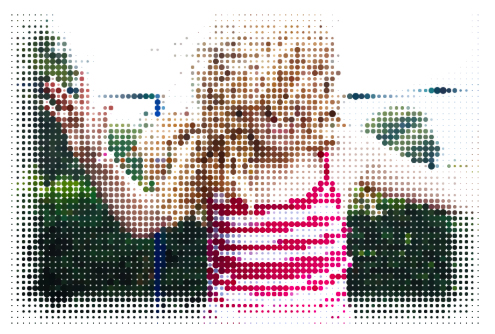Updated 12/08/2020
As a teenager you are confronted by a number of archetypes, whether sporty/geeky/outsider in flavour they are usually based on some fictional aspirational quality: superhuman football dribbling, mathematical prowess or an impossibly handsome, brooding style. Part of teenage development is to decide which archetype you want to align with, then create the narrative which best projects this to others. If you have ever been a teenager, or shared air with one, you will be privy to frequent egoistic boasts and preening either through sly digs at authority or overt proclamations of ability.
In possibly the most aggravating sitcom in a long line of aggravating sitcoms, an archetypal geek proclaims that photographic memory is a misnomer and that he has an ‘eidetic memory’. This is a classic intellectual bait-and-switch: a ‘photographic memory’ is too folksy and possibly bluster, ‘eidetic memory’ sounds like a diagnosis or scientifically validated term, and therefore has the sweetener of being esoteric enough that other pseuds/sycophants would not question it. There are defined differences, however, eidetic memory is a type of memory that is almost complete compared to reality and can consist of visual, auditory or other components. Photographic memory is used more to describe the ability to immediately capture a large amount of text or numbers and recall it perfectly (think of Mike, the character from another televisual source of aggravation, Suits).
Let’s look at the evidence.
 If photographic memory truly existed, there would be plenty of evidence of individuals demonstrating the skill, possibly to rapturous media attention. Look no further than Elizabeth Stromeyer. In all of scientific history Elizabeth Stromeyer is the first, and only, person to achieve this. However (before the Sheldon fans ignite a vicious tweet-storm), the experimenter who tested her also happened to be her fiance, and she has also refused to be tested in any way since. I guess we can safely put this in the evidence folder marked ‘spoon-bending and breatharianism’.
If photographic memory truly existed, there would be plenty of evidence of individuals demonstrating the skill, possibly to rapturous media attention. Look no further than Elizabeth Stromeyer. In all of scientific history Elizabeth Stromeyer is the first, and only, person to achieve this. However (before the Sheldon fans ignite a vicious tweet-storm), the experimenter who tested her also happened to be her fiance, and she has also refused to be tested in any way since. I guess we can safely put this in the evidence folder marked ‘spoon-bending and breatharianism’.
Lost the dot-plot
An ingenious test for photographic memory is to show an apparently random dot-plot one day, then a different one the next. The test subject should be able to mentally fuse the two patterns together to make the intended complete image without ever seeing them together at the same time.
“But what about that lady I heard about who can remember small details from any day in her life – whats-her-name?”Yes, well this is a case of mistaken identity: Jill Price was the first person to be diagnosed with hyperthymesia, a condition akin to OCD where the individual obsessively autobiographies every aspect of their lives. Excessive, relentless repetition and diarising will lead to strong mental connections, and monks who commit to a life of religiously reproducing the Bible have similar capacities.
